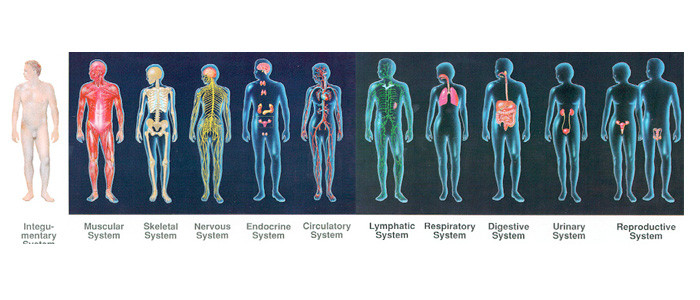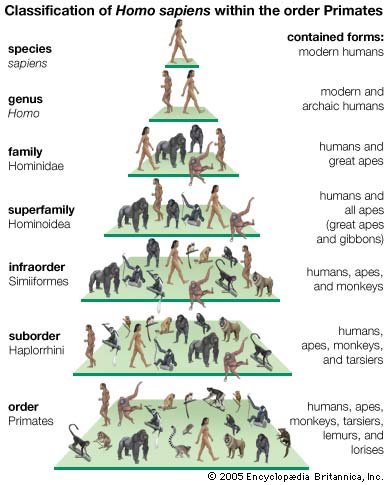GED120 - Science of Everyday Life
Module 2: Life Sciences
Introduction
In this module, we will look at the vital world of Life Sciences. We will explore the science of Fitness and Nutritional choices, and how these affect our everyday lives. We will look inside the body to discover how important organ systems work and learn about diseases and illnesses. We will also explore the various kingdoms of living things and learn how they are similar and how they differ.
Module Outcomes
1.0 Locate, interpret, analyze and organize scientific information from a variety of sources.
1.1 Identify reliable sources of scientific information.
1.2 Identify key figures in science and new scientific terms.
1.3 Create reports based on scientific knowledge.
1.4 Discuss current situations related to everyday sciences.
2.0 Define and use selected terms and concepts related to the study of life sciences and physical sciences.
2.1 Define terms.
2.2 Use terms in assignments.
2.3 Develop a strategy for interpreting new scientific words.
5.0 Situate life science within the broader context of science; identify selected key figures in science and at least one contemporary significant issue.
5.1 Identify key concepts and terms related to life science.
5.2 Identify current issues in the life sciences.
5.3 Use principles of the scientific method to address a given situation related to life sciences.
Lesson Notes

Fitness is very important to YOUR everyday life. Fitness is not necessarily defined as going to a gym or running a marathon but simply keeping your body active.
Both your Muscular System and Skeletal System depend on regular activity to function properly.
Studies have been conducted to find out if Exercise Really Does Help Your Body and what Principles of Exercise Science exist that help to determine how muscle grows as well as the differences between Aerobic and Anaerobic activities. From the results of many of these studies, Physical Activity Guidelines have been established. How do you measure up?
More information:
Misconceptions about Exercise: http://youtu.be/rEniG2uf35U
http://www.exercisebiology.com/ This site explores many exercise questions from a science standpoint. All articles provide references to scientific sources.
Photo Credit: http://www.shutterstock.com/pic-134140520/stock-photo-athlete-running-sport-feet-on-trail-healthy-lifestyle-fitness.html?src=-18 (The instructor does not endorse this site. This is simply a link to credit the original owner of the banner picture)

Nutrition
For this week, we are looking at Nutrition and our Body… super important for our daily activities! How many people go throughout their day and just eat when they are hungry? Who actually keeps track of what they eat? Why does it matter?
Start off by reading a general article about Food and Macronutrients (multiple pages). Once you get through the pages of this, learn how it relates to these 'calories' we hear about all of the time. Lastly, have a look at a common way to calculate your daily caloric needs.
Once you have finished reading these articles, watch the following two videos to learn how your body Digests Food and how it Excretes Waste!
More Information:
If you want to take your exploration a step further, have a look at these short videos.
Photo Credit: http://www.opportunityfitness.com.au/nutrition_and_weight_loss (The instructor does not endorse this site. This is simply a link to credit the original owner of the banner picture)
Lesson Notes

We have already looked at 4 body systems that we use every day: Muscular, Skeletal, Digestive and Excretory. This week we will finish looking at these systems by adding another 4: the Nervous System*, the Circulatory and Respiratory Systems and the Immune System.
Following the video on the Immune System, have a look at how 3 of the most dangerous and widespread illnesses affect the human body: Cancer, Heart Disease and Strokes (first two pages). Understanding these illnesses may help you to empathize with someone you know.
*Note - I encourage you to watch the segment from 7:15 to 10:15 in the video but this information will not be included in the assessment.
More information:
If you want to take your exploration a step further, have a look at these other body systems.
(Note: There is also the Lymphatic System)
You can also learn more about the Immune System here: http://www.thebody.com/content/art2499.html
Photo Credit: http://bodysystemsdesign.com/welcome-to-body-systems-design/ (The instructor does not endorse this site. This is simply a link to credit the original owner of the banner picture)
Lesson Notes

We are on our final week of living things and thus far we have only looked at the human body. The reason for this is no matter where you are; out on a ship at sea, sitting at a desk in an office or on the computer at home, your own bodily functions are part of your Everyday Life! However, other living things are important as well.
In this week's lesson, we are looking at living things as a whole. There is only one week based on this so we will be looking at living things in a very broad, scientific approach; that of evolution and classification.
Let's start off a bit lighter and watch a 'fun' video on Animal Misconceptions. We will then delve into the Evolution of living things and how they are classified, also known as Taxonomy. To finish off, we will have a special look at Plants since their function is very important to our Everyday Lives!
Maybe through this weeks readings, you will gain a new appreciation of just how closely we are related to many other living things around us, our evolutionary "relatives".
Keep in mind that the classification of living things is constantly evolving, and not every biologist agrees on any one system.
More information:
If you would like to know more about living things, check out the following carefully selected links:
.
Photo Credit: http://www.britannica.com/EBchecked/topic/1350865/Homo-sapiens (The instructor does not endorse this site. This is simply a link to credit the original owner of the banner picture)
Concepts to Consider
Think about current situations related to everyday sciences.